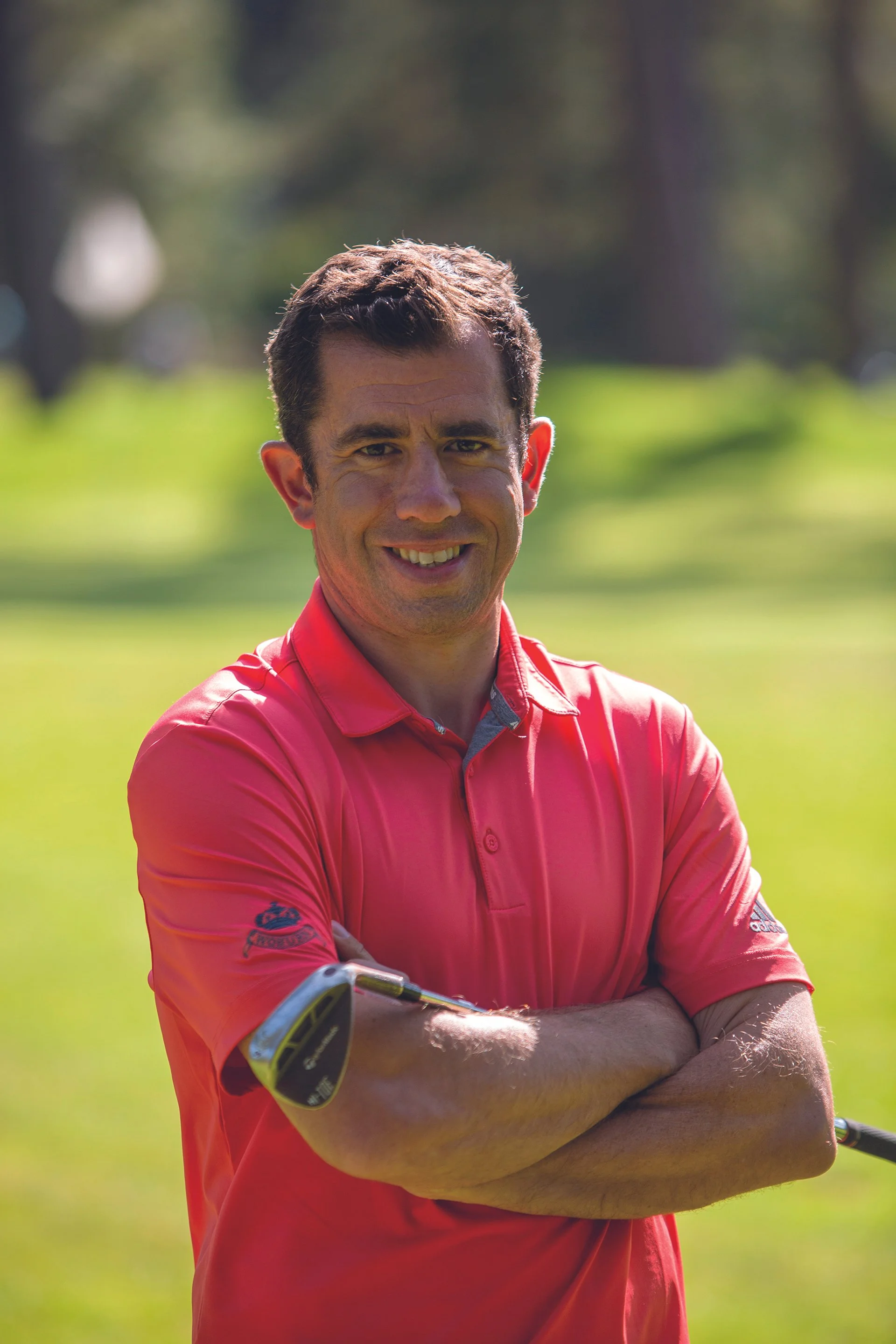CASE STUDY: COACHING IMPACT
Dan Grieve:
“I have always been a lifelong learner”
The Woburn Head Professional recently became the 64th PGA Member to achieve Master status – in his case as a Coach

IN recent years Dan Grieve has become one of the most recognisable, and welcome, faces to break down the mysteries of the short game. The Woburn Head Professional is a best-selling author with '3 Releases: The Short Game System', and he now has over half a million followers on social media, thanks to his uncomplicated and hugely insightful knowledge of the short game. Grieve was recently awarded Master Coach status via the PGA Excel programme that allows PGA Members to be recognised for their expertise and experience.
What is PGA Excel?
PGA Excel is a pathway to progression through the PGA’s membership framework that rewards PGA Members for their impact and achievements and inspires them to reach their potential. Different membership designations are awarded through PGA Excel, enabling Members to use these bands and the accompanying logos to market, promote and differentiate themselves from other PGA Members.
“I have always been a lifelong learner,” said Grieve. “I have always liked to study and keep on developing my learning. I was very proud to join The PGA in 2000 and I gained Trainee of the Year honours. I’ve always wanted to reach the top, and I’ve seen a few other Pros get Master status like Luther Blacklock at Woburn, and I thought it would be nice one day to do the same. I have always wanted to improve my designations and keep moving up the ladder and, now that I have become a PGA Master Professional, it just shows that you aren’t sitting back and that you are trying to improve all the time.
“To have made a global impact, which the book and the videos have done now, is probably the key behind the Master status. It was a lovely reward and I was very honoured to have been just the 64th PGA Professional to have received it. People in and out of the industry know what Master means and I have received loads of messages saying it is fantastic. It is the highest accolade that you could receive.”
“I didn’t set out to be a short-game coach – it just happened, and Charley Hull was the catalyst”
Grieve joined Woburn in 2006, combining time in the shop with teaching, as he pursued his ambition of becoming a Head Professional.
“I never saw myself as being a full-time coach,” he said. “I was self-employed with the teaching, and it was up to me how much I did, so I very quickly developed a full diary. Then I went full-time teaching in 2008, and I have never looked back.”
Nor was he seen as a specialist short-game coach – but that all changed as he started working with a teenage Charley Hull some 13 years ago.
“Charley had just turned pro, and she was fantastic tee to green back then, but she really struggled around the greens. She had too many long-game ingredients in there, and her pitching wasn’t very good. I worked so hard with Charley for so many hours every week, it was incredible. Then she burst on to the scene, and she finished second in her first five pro tournaments. I would host clinics with her for corporate days, and I caddied for her at the Women's Open at St Andrews.
“Suddenly I was around all these tour coaches being introduced as Charley Hull’s short-game coach. I had made some big improvements in my short-game knowledge, but I didn’t think that I knew it inside out. So that really made me go down this route of researching and developing my own concepts. I am the sort of person that, if I am going to do something, then I need to know it inside out. Then I had some success with other players, like Georgia Hall, and then came the social media and the book, and the whole reputation has come from that really. But it wasn’t planned, I didn’t set out to be a short-game coach, it just happened, and Charley was the catalyst I guess,” he said.
“Now that I have become a PGA Master Professional, it just shows that you aren’t sitting back and that you are trying to improve all the time”
Grieve is finally seeing the short game earning the respect it deserves – and that includes more of the kind of facilities he is able to take advantage of at Woburn.
“I have definitely seen a trend with more clubs building specialist short-game areas, and Woburn have helped to lead the way on that with our Tavistock Short Game Area. I also get all sorts of people coming to the short-game school telling me they have no facilities or a tiny little green, which usually is poorly maintained, and that there is no sand in the bunker and so on. I do think it can improve a lot, and I’m hoping that the short-game revolution can help. I would like to see more short-game facilities at ranges as well, even if it is just an artificial area. If you create enough space you can do it,” he said.

Get golf business insights straight to your inbox
Sign up for the first look at the latest news, features, exclusive interviews and podcast episodes with our monthly newsletter
